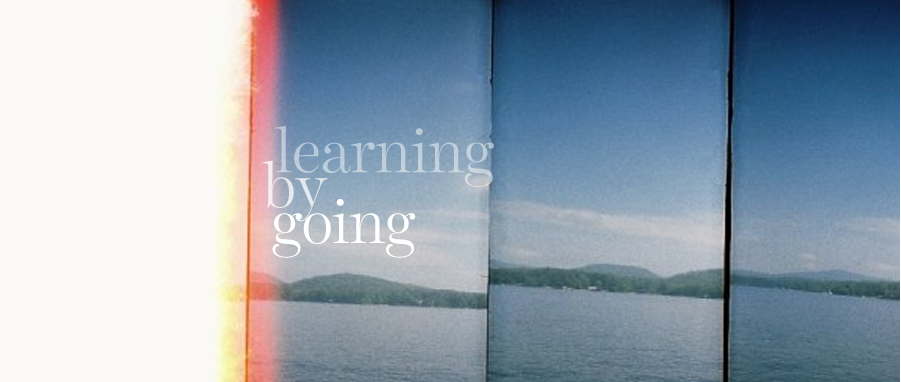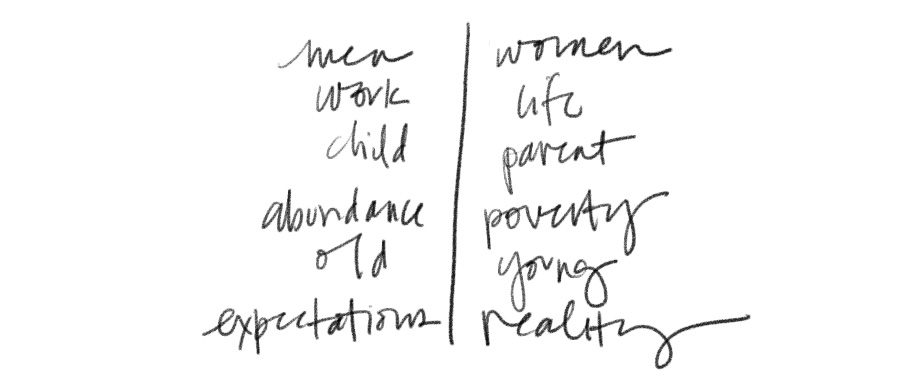Wherever you go, there you are. I’ll just go ahead and say it: I live in New York, but I am not entirely at home here. When the question of where I am from comes up, my answer tends toward the knee-jerk and almost always mildly defensive: “CALIFORNIA, I am from California.” This is said as if to distinguish myself somehow, as if to say ‘I really belong somewhere else.’ To wit, it seems the question of where you are from is most often posed when you are experiencing some particularly regional inconvenience, hazard, catastrophe or maltreatment and you find yourself having to explain to either your perpetrator or the person with whom you are being victimized that this sort of thing is not tolerated elsewhere.
Cliché but true---there is something about this place that not only draws you here, but keeps you here and pulls you back. I managed to get out once, a few years ago, but somehow I am right back here in an apartment that I swear is “totally huge for New York.” Like so many people who have come before me, when I left the first time, I lifted off at JFK and thought, ‘Well, I survived THAT and it sure was zany, but Hello Civilization!’ I dreamed of my triumphant return to parking lots, customer service, clean public bathrooms, a revitalized regard for my fellow humanity and a host of other benefits associated with escaping the concrete jungle.
Inside, I feel immutably “Californian.” I prefer a slower pace of life. The beach is my favorite place in the world. I am always cold. I eat avocado in some form almost every day. I like living in a lot of space. I actually enjoy chatting up a stranger, sometimes. I refer to every highway as a “freeway” and will always describe it as “the” 95, instead of 95. I might never have a totally appropriate jacket for any of the seasons.
Still, I lie to people all the time when they ask how I ended up moving back. I tell them I came back exclusively for love. I tell them my husband was living here and there was no other option. While this is all technically true, when it became clear that a return to New York was in the offing . . . I felt a little dazzle. There is some part of me (possibly a self-loathing part) that feels vaunted by surmounting the daily challenges involved in making a life in this punishing place. I feel smarter here and weirder here. If I had more time or energy (maybe I’ll get to it this weekend) I would be able to avail myself of quite literally any variety of artistic, cultural or intellectual happening. Plus, the food, THE FOOD! New York won’t ever let me out of her dirty grasp but I know I will never feel like I am of this place.
The question of identity as it relates to where you happen to be born or raised is truly fascinating to me. I obviously didn’t choose California, my parents did. But I feel like a Californian through-and-through. Meanwhile, my parents are New Yorkers who described feeling out of place in California much of their adult lives. Then they watched three of their adult children eagerly move to New York at various points.
Most of the people I know are thrilled to slough off whatever city or town shaped them and adopt the personage of the place they actually had the good sense to choose. I’m not sure whether it is because I am nostalgic or loyal that California stays with me. I have never quite understood how to integrate the part of me that wants to remain unaffected and the part of me that seriously considers a dinner reservation at 10:45 PM. Aside from all the garden variety letting go of childhood, end of innocence themes to explore on the couch, I am also reluctant to succumb to a place where people disappear into their own perceived uniqueness.
Some time last year, I was leaving on a trip to California with my husband and I said, “I can’t wait to go home!” Immediately, he looked crestfallen, “But, New York is your home. That is where your husband and dog (and now baby daughter) live.” This is when I started thinking more genuinely about reconciling my bicoastal identity. For now, I rack up JetBlue mileage points, burn through my iPhone battery chatting obsessively with friends and sprinkle a little California Love around the five boroughs whenever I can. Eventually, I hope to toggle seamlessly between welling up with tears over the Manhattan skyline at sunset and flipping my very best bird at the guy behind me honking his ass off because the light turned green and he can’t wait another nanosecond.
























 At first glance, this marriage of country and city appears to be mostly an aesthetic choice. But I don’t eat farm fresh produce just because it’s beautiful to photograph and my choice to fill my home only with flowers from nearby farmers goes beyond my particular adoration of Black-eyed Susans. For me, these choices also take into account my impact on the planet. I’m not saying that country folk have all the world’s environmental questions sorted, but sometimes living in a big city can mean that the nuances of seasons and the environmental impact of our choices can feel distant. The truth is that whether we’re in the country or the city or in all the places in between, we’re living in an era of global climate change. In the face of these changes, it’s been important for me to reconsider my own lifestyle.
At first glance, this marriage of country and city appears to be mostly an aesthetic choice. But I don’t eat farm fresh produce just because it’s beautiful to photograph and my choice to fill my home only with flowers from nearby farmers goes beyond my particular adoration of Black-eyed Susans. For me, these choices also take into account my impact on the planet. I’m not saying that country folk have all the world’s environmental questions sorted, but sometimes living in a big city can mean that the nuances of seasons and the environmental impact of our choices can feel distant. The truth is that whether we’re in the country or the city or in all the places in between, we’re living in an era of global climate change. In the face of these changes, it’s been important for me to reconsider my own lifestyle. It’s a tough thing, this writing about sustainabilty and lifestyle. For some folks, it will across as preachy: pushing an agenda that finishes by boosting the confidence of the author and trampling on the choices of readers. For others, it won't go far enough: buying cut flowers from a nearby farmer isn’t going save the planet. Always, the issues are complicated. What of the workers? What of the economics? How do you afford grass-fed meat, anyway? This column isn’t a place for me to tell you what to do, it’s a space for me to chronicle what I’m doing. It’s a celebration of the city. It’s a celebration of the country. Mostly, it’s a celebration of the planet and a story about making my place in it. I hope you’ll indulge me.
It’s a tough thing, this writing about sustainabilty and lifestyle. For some folks, it will across as preachy: pushing an agenda that finishes by boosting the confidence of the author and trampling on the choices of readers. For others, it won't go far enough: buying cut flowers from a nearby farmer isn’t going save the planet. Always, the issues are complicated. What of the workers? What of the economics? How do you afford grass-fed meat, anyway? This column isn’t a place for me to tell you what to do, it’s a space for me to chronicle what I’m doing. It’s a celebration of the city. It’s a celebration of the country. Mostly, it’s a celebration of the planet and a story about making my place in it. I hope you’ll indulge me.







